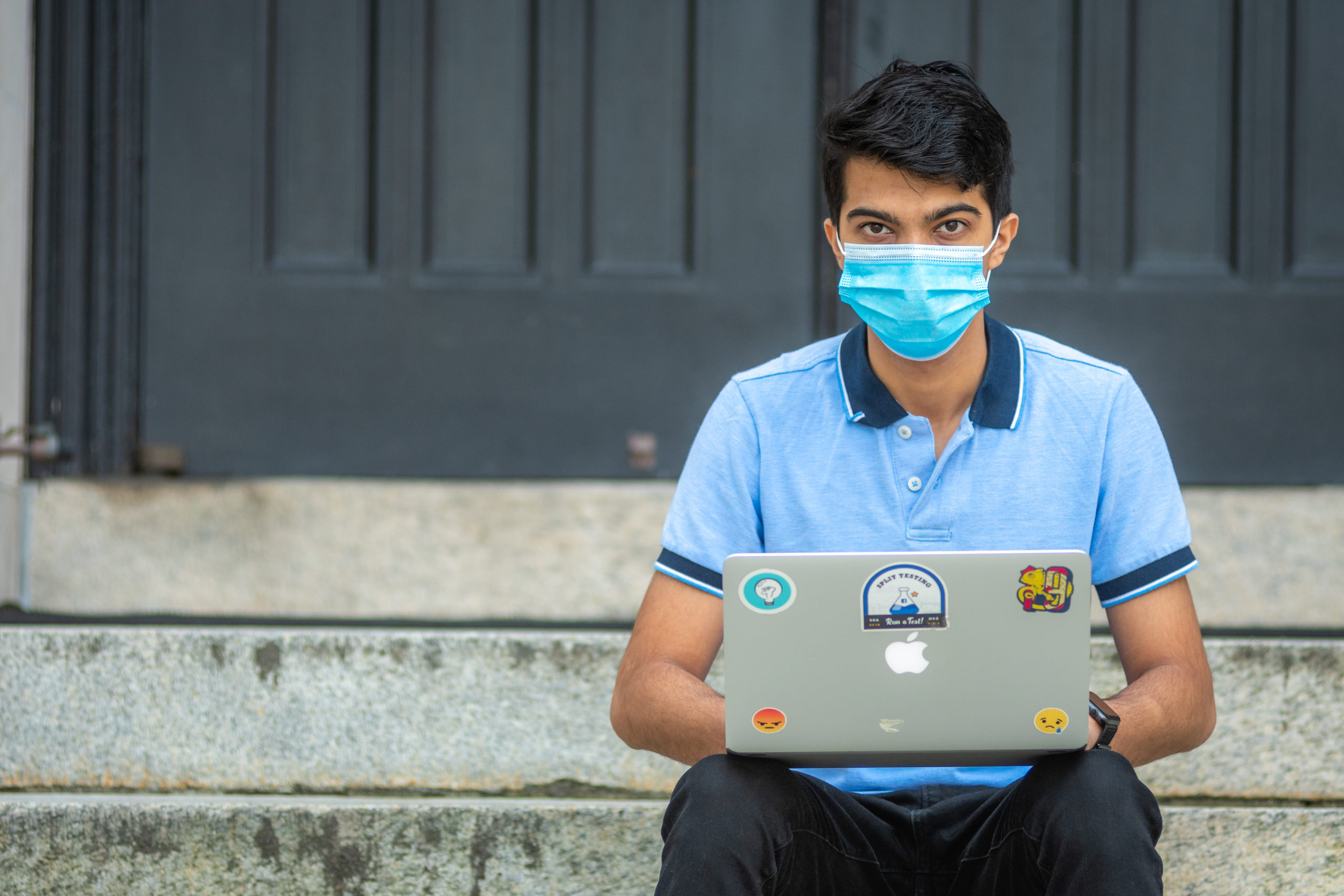#ClarkTogether
Nipurna Dhakal ’22 visualizes new approaches to battling COVID-19

Health experts continue to stress the importance of social distancing and wearing face coverings to reduce the spread of COVID-19. To help the public understand just how impactful these preventative measures can be, Nipurna Dhakal ’22 spent the summer working with the Harvard Humanitarian Initiative to develop a virus response simulator that visualizes transmission rates under various scenarios.
“It’s a great tool to visualize how COVID transmission is happening and how different measures can limit the spread of the virus,” says Dhakal, who is majoring in mathematics and computer science at Clark University.
As a computer science intern at HHI, Dhakal worked alongside the team’s lead researcher, Michael de St. Aubin, to help develop and improve the simulator — maximizing its speed and efficiency, improving data visualization, and adding new scenarios to make the program more realistic and user friendly. The tool, which is available to the public, allows users to select the number of “agents” — or people — in each scenario, followed by the percentage of face coverings, social distancing, contract tracing, and other precautions used within that population. The simulator reveals rates of exposure, infection, recovery, and death among the agents.
“Because this project is so critical to the real-world experience, the Harvard Humanitarian Initiative bought a domain so any one of us can go to our browser to visit the website and simulate how the virus spreads,” Dhakal says.
Dhakal applied for the internship after learning about the organization from a friend, Archit Goyal ’21, who had previously interned at HHI. Goyal knew Dhakal was passionate about the real-life applications of computer science and suggested he inquire about the position. Dhakal then connected with Clark alumna Saira Khan ’17, M.S. ’18, an imagery analyst at HHI. After learning about Dhakal’s interests and background, she scheduled an interview with de St. Aubin the following week.
“They were both super friendly and they saw the passion in me and took me on board,” Dhakal says. “I also received funding through ClarkCONNECT, which helped me because the internship was unpaid.”
Dhakal was originally hired to assist a team of video game developers in the creation of an Ebola virus simulator, but the project was disrupted by the COVID-19 pandemic. Fortunately, he was able to shift gears, joining the group working on the COVID-19 simulator. “It was amazing because COVID hit exactly at that point,” he says. “It gave me the opportunity to work for something and help reduce the spread of the virus. That’s something I’m very grateful for.”
Throughout the internship, Dhakal worked remotely with de St. Aubin and a team of researchers who provided him with data to code. He spent the summer improving the simulator, including creating a scenario that visualizes the increased rate of virus transmission indoors compared to outdoors. Dhakal met with de St. Aubin weekly to discuss potential enhancements.
This winter, he plans to rejoin the team to work on the Ebola simulator.
At Clark, Dhakal is involved with the South Asian Student Association and the Center for Technology Innovation, and Entrepreneurship — an organization he says has allowed him to network and bolster his skills. He hopes to pursue a career in software engineering and one day open a tech business.
“Communicating with the Clark community has helped me expand my passions and interests,” he says. “Every Clarkie has a different life story and different goals, and hearing their stories exposes me to new and interesting perspectives. Listening to real-life job experiences has made me passionate and aware of jobs that I would like to explore in the future.”
Through the Career Connections Center, you can find a job or internship, connect with employers and alumni career professionals, work on your resume, practice your interview skills, obtain advice, research careers, and much more. #clarkconnectsyou


